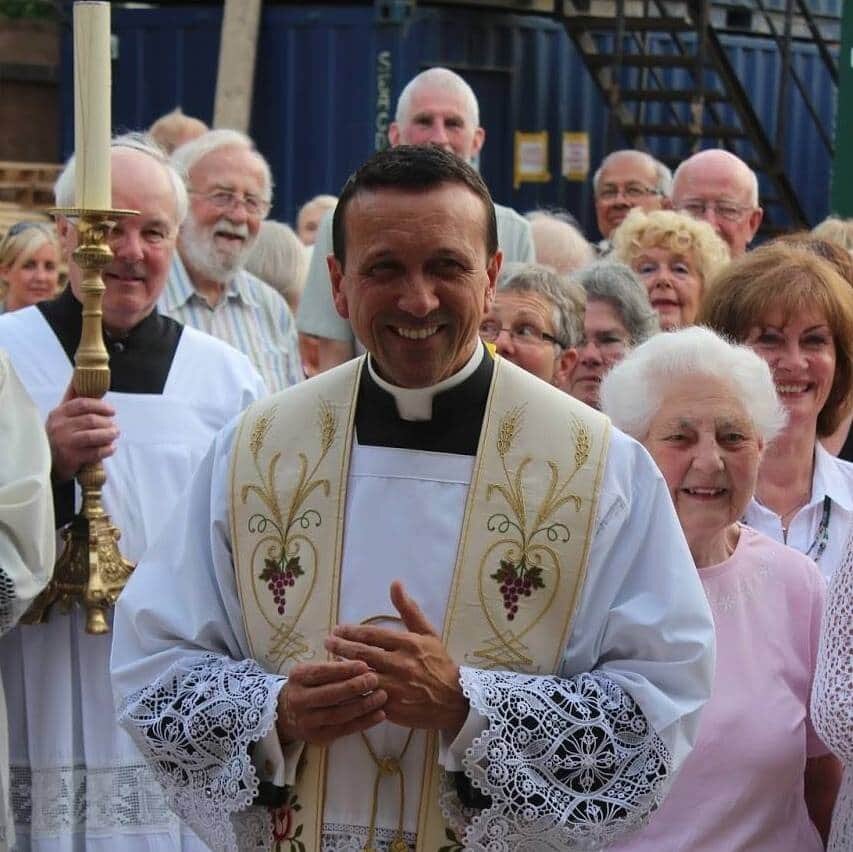Dear Friends in Christ
We have passed the mid-way stage of Lent, and the Church allows us a little respite, a glimpse of the joy that will come to us at Easter, in the prayers of the liturgy and in the lighter tone of the vesture used on this Lætare Sunday. The words of the Introit of the Mass bid Jerusalem rejoice, and come together all you that love her: rejoice with joy, you that have been in sorrow: that you may exult... Jerusalem is the place where the events of our salvation are going to unfold and so it is the City that, in a very true sense, is blessed. It is there that our Saviour will be lifted up upon the Cross just as Moses lifted up the serpent in the desert. Everything in the Old Testament is a preparation for, or a prefigurement of, the coming of the Messiah. As we approach the part of Lent traditionally termed Passiontide we can begin to think in more detail about the particulars of the Passion of Our Lord. We reflect on these mysteries so that we can apply them to our own lives and understand something of the love God shows us by going to this extreme. During Lent we try with every greater determination to unite all of the crosses and contradictions of this life with the Passion of Jesus and His Cross. I would like to share with you some lovely lines of Pope Emeritus Benedict, from his Encyclical Letter on Hope - Spe Salvi -written to the Church in 2007:
I would like to add here another brief comment with some relevance for everyday living. There used to be a form of devotion—perhaps less practised today but quite widespread not long ago—that included the idea of “offering up” the minor daily hardships that continually strike at us like irritating “jabs”, thereby giving them a meaning. Of course, there were some exaggerations and perhaps unhealthy applications of this devotion, but we need to ask ourselves whether there may not after all have been something essential and helpful contained within it. What does it mean to offer something up? Those who did so were convinced that they could insert these little annoyances into Christ's great “com-passion” so that they somehow became part of the treasury of compassion so greatly needed by the human race. In this way, even the small inconveniences of daily life could acquire meaning and contribute to the economy of good and of human love. Maybe we should consider whether it might be judicious to revive this practice ourselves (40).
God bless you all!
Msgr Kevin Hale
Priest@LourdesLeigh.org ✚ 01702 478078
Homily available at LourdesLeigh.org

